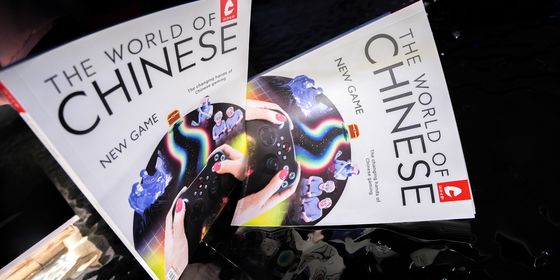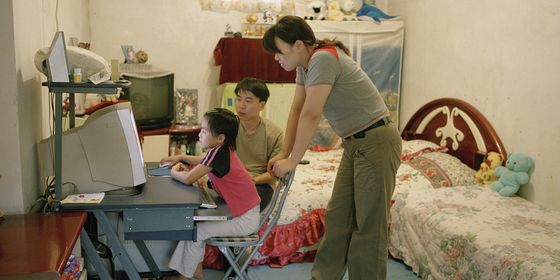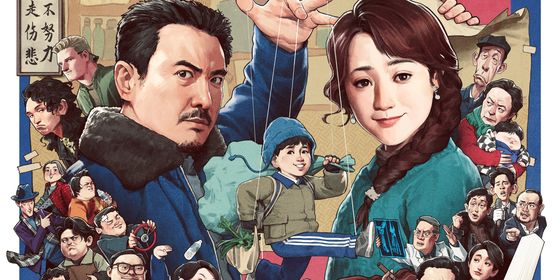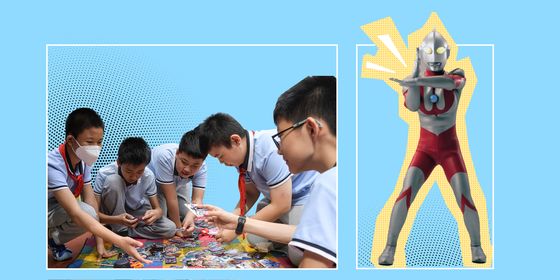A 5-year-old’s 15-page CV reflects China’s latest schooling phenomenon: the Super Kid
Everyone hopes to have an impressive resume. But it’s tough when the CV of a 5-year-old makes even the most enterprising of candidates feel inadequate.
Earlier this month, a 15-page first-person document—presumed to be written by an applicant for a high-end Shanghai private school—was leaked and went viral as the latest representative of the phenomenon of 牛娃, or “super kids.”
According to the anonymous child, he has a “warm family” (both parents graduated from Fudan University), but is determined to “outperform them in the future”; a “unique personality” and can “adjust [his] mood and…study quickly” when criticized; “a high Adversity Quotient,” and is “strong-willed,” meaning he doesn’t cry—ever.
The most stunning part was the child’s “varied hobbies.” He can, apparently, recite over 200 ancient poems, reads 500 books in English every year, writes three journals in English every week “recording his feelings”; has finished over 20 “thinking training” books, with content covering spatial thinking, memory training, logical reasoning and geometry; is the emcee of the kindergarten; loves street dance; has completed 150 murals; started to swim at age 3, learned to play piano age 4.5, and began playing Go four months ago…
That’s still not the end. Quoting an ancient Chinese saying “read 10,000 books, and travel 10,000 miles,” the resume then showed a world map with locations he had visited (his resume added that he enjoyed his 6.5-kilometer bus ride to kindergarten every day).
The hashtag “Resume of a Five-year-old Kid” has since been viewed over 41 million times. One Weibo user commented: “I will never achieve more than this child in my lifetime.” Others felt it was just another case of tiger parenting.
Really hate these things. Peoples should do things in an age-appropriate manner
But this boy is not the first “super kid” to gain attention on social media. Parents often feel they have to make an eye-catching CV for their children to land a place in a top school. About half a year ago, after an entrance exam for another Shanghai primary school, some pre-school kids’ CVs leaked out—and it seems these “super kids” are everywhere.
Child 1 had learned over 2,000 Chinese characters; could draw the cardiopulmonary bypass and neurotransmission diagrams; had a knowledge of syllogism; loved inventing board games, and enjoyed brush calligraphy, Go, chess and logic games.
Another claimed to have an IQ of 141; could recognize dozens of national flags at 18 months, before he even learned to speak; had won prizes in 12 national math competitions; participated in the Hua Luogen Golden Cup math national competition, together with students from primary and secondary school, and was into the next round with a score of 70.
But that was nothing! Child 3 had supposedly learned to speak at three months; could recite the “Di Zi Gui” (a book of traditional Chinese etiquette) at 18 months; began reading newspapers in kindergarten; learned robot programming every week; was an accomplished swimmer, having learned breast stroke and diving at age 3; could bounce a ball 217 times by the first year of kindergarten and was already riding a bike.
Others could explain the principals of nuclear reactors, base pairing and RNA transcription; write Swift code; knew calculus; only played programming games like Lightbot, and Human Resource Machine… the list goes on.
Netizens were stunned by the talent of these prodigies, commenting that “Maybe these kids are reincarnated Einsteins.” But others said the boasts reflected increasingly fierce competition for education resources, and between parents:
It’s hard for a poor family to foster outstanding kids…on the surface it’s a high-achieving kid, but in fact the competition is between parents, and their social backgrounds
The trend of bringing up “super kids” had already raised some concerns among educators. The most mentioned term is a Chinese chengyu 揠苗助长, meaning “help shoots to grow by pulling them upward.” As the story behind the proverb goes, an overzealous farmer did just such a thing, and ended up killing all his crops.
As teacher Hu Xinhong commented in the Beijing News: “It’s not realistic to ask parents to be indifferent about education. But no matter what the competition it is, the bottom line should be respecting the basic education principles.” An interesting thought, and no doubt this prompted a 5-year-old reader of the Beijing News to hurriedly ask his parents for books on basic education principle…











